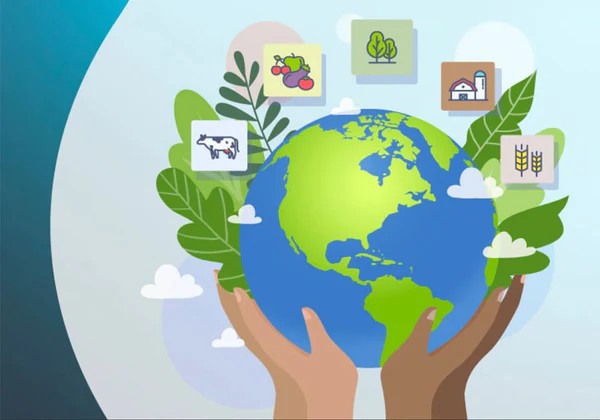Secretary of Agriculture Tom Vilsack announced the second-round awardees of the Partnership for Climate-Smart Commodities, a United States Department of Agriculture (USDA) effort to combat the climate crisis by partnering with agriculture, forestry, and rural communities to provide climate solutions that strengthen rural America. These projects were designed to provide innovative and meaningful opportunities for small and underserved producers to participate in that would provide adaptation and/or mitigation efforts related to climate change. Re- Nuble’s project entitled, “Increasing Farm Resource Efficiency by Utilizing On-Site Post-Production Food Byproducts into Innovative Fertilizers and Climate-Smart Commodities” was awarded $4.6 million grant as part of the second pool of partnerships for Climate-Smart Commodities funding opportunity. Unique, Re-Nuble’s project is focused on creating value for farms using their on-site, post-production agricultural byproducts and unharvested residuals.

“Re-Nuble is pleased to see the USDA prioritize more resources to small and underserved producers as we have often witnessed larger producers benefit from innovative solutions. Often having the resources capable to competitively solicit solutions such as ours, there is typically no incentive to share the insights and experiences obtained from such pilot projects. Gratefully, the USDA is now providing monetary and market-driven incentives for these potential early adopters to trial new technologies while reducing as much risk as possible for all participants. I think that it’s incredibly honorable for the USDA to offer a program that provides market, equipment, and monetary support that is also focused on maximizing for scalability“ said Tinia Pina, Founder, and CEO of Re-Nuble.”
Amid an ongoing and intensifying water crisis in the Southwest, Re-Nuble aims to introduce innovative closed-loop agriculture methods that optimize regenerative and sustainable agriculture using systematic methods that can earn farmers more revenue from formerly perceived waste streams. Their organic cycling science approach allows farms to use a fully integrated, closed-loop, and self-sustaining nutrient system that reduces input and disposal costs while creating climate-smart commodities for reselling in secondary markets.
For more information: Re-Nuble
Re-Nuble
www.re-nuble.com
